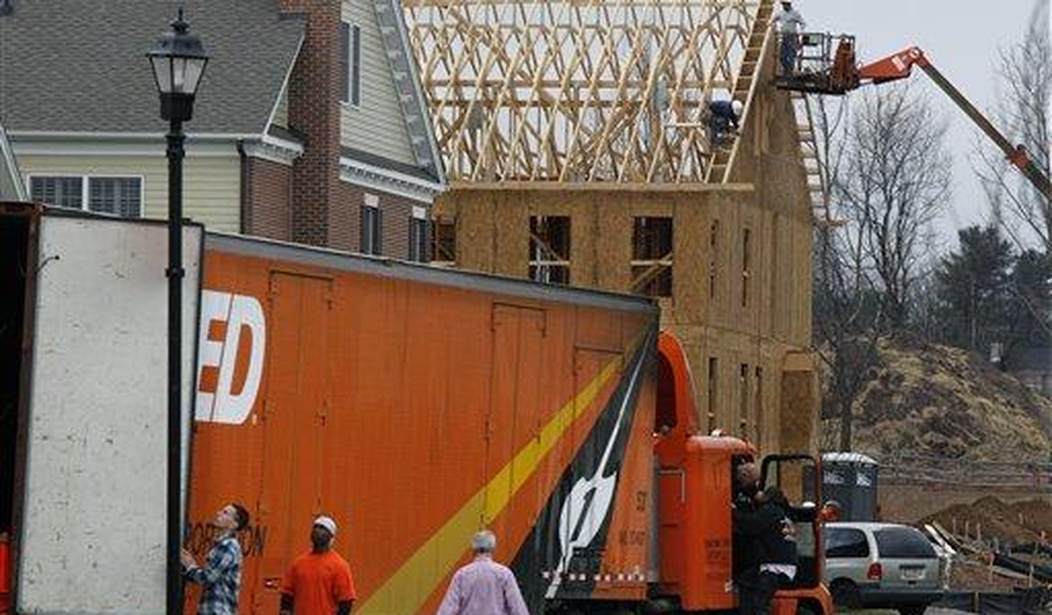There is a great migration going on in America today, and like most great migrations, the driving force behind it is economic.
New York and California saw the largest loss of tax income from migration of any states, according to a new study of IRS migration data.
California lost $29 billion in adjusted gross income from migration out of the state in 2021 and $18 billion the year before, according to IRS data. Meanwhile, the Empire State lost $25 billion in 2021 and $20 billion in 2020.
California lost more than $340 million in 2021 IRS tax revenue as residents fled the progressive haven, according to online real estate portal MyEListing.com. Between January 2020 and July 2022, outmigration in the state surpassed in-migration by almost 700,000 residents.
It’s interesting, as for now, at least, the people who are fleeing California and New York are the ones most able to afford it. One would be safe in assuming there will be a second wave of people who can’t really afford to leave but who are driven to it by desperation due to a collapsing economy, rising crime, or other reasons.
There are some people, to be sure, who will stay to the bitter end to soak up as many government benefits as they can, but Stein’s Law applies here as it does everywhere; what can’t continue, won’t. And the blue-state economic model can’t continue. Red state governors are already twitting blue state governors about this migration.
It’s that second wave that is concerning. Why? Because it’s happened before. American novelist John Steinbeck wrote one of the most remarkable books about the outflow of the desperate from the Dust Bowl states during the Depression. John Steinbeck was a leftist himself, but he could sure write a good lick, and his 1939 novel The Grapes of Wrath still stands out as one of the greatest American novels. When writing this, Steinbeck traveled with migrant workers (mostly displaced farmers from Oklahoma, Kansas, and other Dust Bowl states), talked with them, observed them, and that’s why his novel rang so true to people who lived through the Great Depression. The title comes from the Civil War-era Battle Hymn of the Republic:
Mine eyes have seen the glory of the coming of the Lord:
He is trampling out the vintage where the grapes of wrath are stored;
He hath loosed the fatal lightning of his terrible swift sword:
His truth is marching on.
But Steinbeck didn’t write about glorious victories on the battlefield, but of ordinary people, mostly barely literate farmers, struggling to survive in a world where economic conditions are changing hard and fast. The grapes Steinbeck wrote about were truly about anger, the anger of people who don’t understand and can’t adapt to what is happening around them.
The people come with nets to fish for potatoes in the river, and the guards hold them back; they come in rattling cars to get the dumped oranges, but the kerosene is sprayed. And they stand still and watch the potatoes float by, listen to the screaming pigs being killed in a ditch and covered with quicklime, watch the mountains of oranges slop down to a putrefying ooze; and in the eyes of the people there is the failure; and in the eyes of the hungry there is a growing wrath. In the souls of the people the grapes of wrath are filling and growing heavy, growing heavy for the vintage.
In the novel, the migrants fled or were driven away from their Dust Bowl farms, and many of them, as did the Joad family in Steinbeck’s book, headed for what they perceived to be a land of opportunity – California. But they arrived, broke, tired and dirty, to a California that couldn’t absorb them all.
Compare this to what is happening today. The well-off and productive are leaving states whose tax policies punish them, and that’s commendable, as is anyone leaving an abusive relationship. But note the revenue loss in those states, like New York and California, and contemplate on whom the tax burden will fall when the states can’t meet their generous commitments. Those burdens will then fall on middle-class and blue-collar families because, after all, you can’t expect a Democrat-run state government to actually show any fiscal responsibility and reduce spending. This second wave won’t be people leaving to preserve wealth and opportunities; it will be people for whom moving is a more burdensome expense, who would have preferred to stay in place, and who will probably be more than a bit peeved at being driven from their homes. And they may well arrive in a state that, like the California of the Depression, was prosperous but not endlessly so.
It’s an odd time. We now live in an economic world where the Beverly Hillbillies would be packing up and leaving Beverly Hills to return to a more prosperous Tennessee. And things won’t be turned about any time soon.














